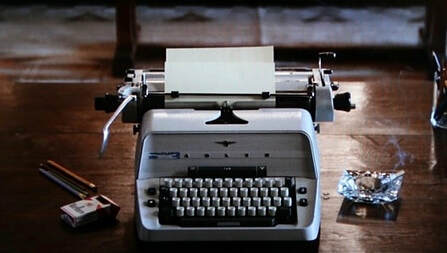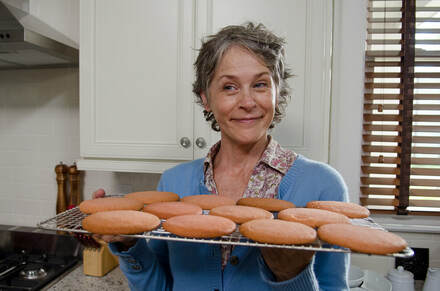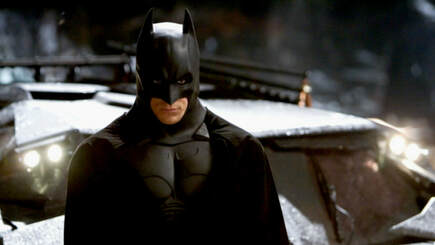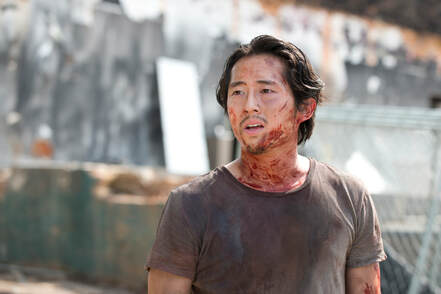Written by Shae Rufe  As a whole, love stories manage to make people flock to read them for various reasons. Despite a lot of flaws, many love stories have become so popular, others have been based off of them. We see this with Twilight and Fifty Shades of Grey. Which, on a whole different level is strange, right? Well, yes and no. While I don’t particularly like either story, I do respect the fact that they are so loved and popular. A hardcore fan audience exists for these novels for various reasons, and in the end, that’s what makes them good in their own right. I could point out why you shouldn’t like either of these, but the bottom line is my opinion doesn’t matter. At their very core both novels are love stories that have grasped on to an audience and refused to let go. Why, though? Because love stories are what a lot of us enjoy reading. It’s the romance. The start of something magical. Even when there’s a falling out, we want to see these couples pull through, and when they do their resolve makes us feel content to close the cover and move on to the next. It’s no different with any story, really, except that love exists in much of what we are reading and seeing today. Let’s face it, even Harry Potter has its various arcs of love interests, whether it’s Harry finally getting with Ginny, or Ron and Hermione’s very strange romance, we can’t deny that this story would be the same if it was just good vs. evil. After all, love is a powerful thing and is a crucial part in J. K. Rowling’s series. What I did like about her work, is that love wasn’t just about Harry finding a girlfriend. It was how the love of a parent, or friends, could overcome any obstacle. That sends a pretty powerful message. We see romantic love thrown at us everywhere, in many shows, and from lots of media angles. So, when stories, shows, and all that come along that show more than just the basic love stories, I’m beyond excited. Supernatural is one of my favorite shows for a reason. While Sam and Dean have various love interests throughout the series, their familial love is far more important. It also shows that basic family dynamics are not the only type of family out there. Which, hey, that’s kind of a really awesome thing. It’s important for people to see things like that. Family is what we make it, and it is pretty damn special. Speaking of special, we cannot overlook where all these love stories stem from. There is one great story that has given birth to pretty much every modern-day love tale out there…yes, I am totally giving Romeo and Juliet that much credit. You have to hand it to Shakespeare; the man knew what he was doing. While it is the classic boy-meets-girl story, there are elements about it that still get audiences excited to this day. Blood feuds between families, young star-crossed lovers, what is not to love about this epic play? Aside from the fact that both our main characters end up dying violently in the end, and never actually get the chance to be together. Which, when it comes down to it, is probably the saddest thing ever, right? What of those stories where our lovers are not meant to be? Batman has certainly gone through his fair share of bad breakups. In various alternate series Lois Lane dies and Superman ends up dating Wonder Woman…which, guys, was I the only one really uncomfortable with that? As much as we love our love stories, they’re not always what we want them to be. In many cases tragedy strikes, and we’re left feeling ripped apart. Or maybe we’re even happy about it. Preference is a huge part of any fandom, and let’s all take a moment and think of who we really like with whom. To me, Harry and Hermione should have ended up together. Katniss should have been with Gale, and I am not even going to get on the whole Superman/Wonder Woman debacle. When it comes to love stories, we can get pretty passionate about what we really like, and what pairings are important to us…
0 Comments
Written by Shae Rufe  Have I talked about the romance portion of writing before? Probably, but it’s hard to ignore love stories when they’re everywhere. Romantic comedies are flooding the movie scene, even action, horror, and superhero movies are filled with the iconic love story. It’s rare when we don’t see these things. Either way, boy meets girl, or girl saves boy, or boy bumbles into girl's life, and soon enough we have a budding romance between our protagonist and their interest. Since the dawn of comics there has been a love story within the nerd world. Let’s face it, we’re humans, and all of us want to be loved, right? Superman found his girl, Batman has even found love, and that’s a bit confusing…I mean…really… What’s the draw? Writing love stories is easy, right? Yes and no. I mean, let’s be honest, it’s not easy to write the love interests of our main characters. Take Pepper Potts. She’s got to have the patience of a saint to deal with Tony Stark, but they work. She balances him out and, in some ways, makes Tony more human. I always think the love interest is an extension of our protagonist. Which, makes sense in some ways. It also shows the main characters as being more vulnerable. They’re willing to let their walls down and be close to another person in ways they’re not normally, so we as an audience are drawn into that on some level. The draw is simple, everyone wants to be desired, and we all live vicariously through the protagonists of stories. Typically, they’re just as flawed as we ourselves feel, and that’s what makes us love them. They’re relatable, and if they can find love, so can we. Some of us already have love and relating to that is a whole different story. Writing love stories isn’t the easiest thing in the world. I have always believed that some people have an outright talent for it. While others, like myself, struggle to grasp at some straws. Romance novels don’t even count here, because I mean…obvious reasons. Either way, when it comes to writing a love story there are a few key elements that we writers shouldn’t miss. Love stories are either the main focus, or a side focus of our story, and there’s nothing wrong with it being a subplot in our long, complicated, plot filled stories. Guardians of the Galaxy is a fantastic example of this. While there’s a lot going on here, the budding love between Star Lord and Gamora isn’t the main plot. It’s actually a tiny blip on the radar, which is fine with me. It fits perfectly, isn’t thrown violently into our faces, and who doesn’t love the Bad Boy redemption taming story, right? Our love stories also shouldn’t be so faint we have to squint at it. Nor should they come out of the blue and surprise you. There’s a fine line, like with any plot device, in writing where balance has to be applied. The most important thing about writing a love story is that you have to have fun with it. Whether it’s the main focus, or a side note, it has to have a purpose. Throwing a random curveball never goes well with an audience. We like to be secretly primed for things. Take the second Avengers movie. In Age of Ultron we’re given subtle hints to Hawkeye’s relationship status. While it feels like Laura comes out of left field, she actually doesn’t. Which, you know…still not sure how I feel about that…. For now, this is where I leave you. Rest assured, you get another follow up, soon. Written by Shae Rufe  Has anyone ever noticed how Themes in novels and movies are sometimes intended and sometimes not? Does that even make sense? Probably not…but seriously, I remember sitting in my college literature classes listening to the professor tell us what the themes of the books we were reading were, and all I could think is ‘Really? That’s what you got out of this?’ It might shock everyone to know that I wasn’t always the most well-liked student around. Regardless, it’s funny to see how we as readers pick up on themes the author might not have been intending. Of course, as writers, we sit and plot out so many different points of angles for our books, but I doubt any of us go ‘I shall have 17 themes in my book!’ And if you do, I mean, that’s cool. To each his own, I suppose. But, really, how often do we pick out 17 different themes in novels? At some point in school we’re taught to tear apart our readings and skin them alive to find hidden things. We find different themes, similar ones, and sometimes we can’t even settle on any. Isn’t that the fun of reading? We get to decide what we consider a theme and what we don’t. I’ve argued that some authors didn’t intend for their books to have more than one or two themes before, and there is no right or wrong answer to that. Sure, I’m probably wrong. I can’t read the author’s mind, but I can sit and ponder what they might have been thinking. In my own writing I’m not one to sit and plot out a huge number of themes. I can say in my current piece there are two major themes; freedom and death. Apart from that, I’m not plotting out how this one sentence will define a sole theme of my novel. That doesn’t mean themes aren’t important. Intended or not, the theme of a novel can greatly impact the reader’s interpretation of it. This is where I got into a lot of arguments in my college lit classes. I don’t believe we should be told what the themes are. I think, the point of themes is that we find them ourselves. Themes may not always be intended but can be interpreted in ways an author never dreams about. I’ve met many an author where a fan has come up to them to discuss a theme, and the author has literally gone ‘huh, I never even thought of that as a theme...’ you really would be surprised at the reactions that has with people. What does that even have to do with anything? Well, despite not always being planned out, themes are important to stories. A theme is the message, topic, or even the very central thing the piece is written about. But there can also be hidden themes; complex arguments that have us thrown into deep discussion. The amazing thing about a theme is that we can find our own within the writings of an author. Like, case in point, Harry Potter. A lot of us thought the theme was perseverance, right? Poor little orphan kid with a terrible family overcomes great obstacles because he’s a mighty wizard. Great story, but what about the other themes? Death is a huge part of the Harry Potter series, and Rowling has no problem showcasing that time and time again throughout her piece. There’s also love, it overcomes all and is the most powerful thing…but what of the lesser known themes. How about sexuality? Did anyone get that from Harry Potter, because I did. I‘m not talking about orientations or anything like that (because that’s a whole other blog for another day), but the basic sexuality of growing up and discovering ones sexualized self. Case and point, Harry and any girl he ever liked ever. So, whether a theme is intended or not, we all need to remember that we can see different themes within different pieces. When it comes to themes there is no right or wrong answer on what they are, just that they exist, and we can interpret them as differently as we see colors. My opinion on theme? It does matter what the author intended, but unless we’re able to see it point blank, and are able to discuss it with the author, there are sometimes themes that they themselves were unaware of making. We shouldn’t be so closed off to the opinions of others on theme. We should, however, embrace them all, and accept that themes are as hidden and as apparent as anything else within a story. Written by John Edward Betancourt  Hello again, dear readers. It’s been a little while since we sat down to discuss the horrors of writing myths and there’s been good reason for that. Because I have to be in honest in telling you that I don’t want to just debunk any old myth out there, I truly want to take the time to write something impactful and thoughtful and that’s why this series isn’t always going to be a weekly thing. But for today at least, there’s one particular myth that I definitely feel the need to address, one so grandiose in nature and so widely misunderstood that even writers believe in ‘Writer’s Block’. Now, for those who have heard of this term but don’t fully understand its meaning, Writer’s Block is in essence, a condition that most scribes believe they suffer from when the going gets tough with a book or a screenplay or any story in general, really. The belief is that something in our minds prevents the words from appearing onto the page and this strange condition is somehow temporary and will eventually lift from the writer’s mind when it has run its course like the common cold and well, while some will stand by this affliction as real, I simply do not. Because in reality, Writer’s Block is nothing more than a psychosomatic condition that works as a cover for excuses and deficiencies when it comes to the creative process. Which may seem like it is a rude thing to say but, let’s be honest, writers like anyone else out there, tend to procrastinate. We find ourselves distracted by television, video games, movies and life and there’s no shame in that, but there seems to be, and when one is properly distracted by something else, it’s far more difficult to focus on the story at hand and truthfully I think a fair majority of writers who believe they’ve come down with the dreaded ‘block’ are in fact unfocused when it comes to their work. Something else is simply on their mind, and while the words are there and are ready to head onto the page, applying their mind and their energies on other tasks or issues in their lives take precedence and it becomes convenient to blame a lack of production on something else, which quite frankly, is about as human as it gets, and I know I’m as guilty when it comes to this as anyone else. But, truly, I think the root cause of the Block stems from something far deeper than mere moments of lazy levity. In fact, I am a firm believer that sometimes the words don’t fly onto the page the way we’d like simply due to the fact that the story in question isn’t developed enough or strong enough to inspire the drive to finish it. Because a good story should in essence infect a writer’s mind. To the point where they rush to their pad and paper or computer to bring it to life because they cannot wait to write a particular scene or moment that continues to rattle around in their head and well, if the story isn’t doing that quite yet, that to me is a problem. Because writing is fun and exciting and the journey of seeing it come to life is what makes it so joyous and there’s nothing wrong with going back and fleshing it out further to reach that thrilling point of no return because guess what? Assembling a story is also writing… So, to summarize, Writer’s Block is in essence a grandiose excuse to not write, and it helps to divert blame and shame over the fact that a writer hasn’t put enough effort into crafting a great story or is spending more time on other endeavors over sitting down to write and while that may seem harsh or insulting, I beg to differ. Because in my opinion, one should always be honest with themselves and expect better of themselves. But, saying ‘I just didn’t feel like writing today’ or ‘I’m not excited about this project yet’ is somehow damning to a writer, which is ironic since we say similar things about every day job we’ve ever worked without giving it a second thought. But I’m starting to drift, so, really, what matters more here is, don’t make excuses, don’t blame something fictional. Just write. Sit down, write a line a day, write a chapter a day, do whatever it takes to finish that story because blaming something else accomplishes nothing, and that book, or that script or that short story that’s been rattling around in your head is never going to get finished until you sit down and bring it to life. Written by Shae Rufe  I find it amusing that I, of all people, am about to write a blog about writing outlines. Guys, I am not the most…put together person, and that can translate over into my writing life. Yet, I can’t overlook the importance of an outline. It doesn’t matter the type of story you’re writing, or the length, an outline can be the most important part of any piece of writing. The basic foundation of any story is to have a beginning, middle, and an end. But, along the way, there are various plot points that need to be hit in order to get to that end. Admittedly, I am really not the best person for this. Or maybe I am the best person. I’ve not been the biggest user of outlines in the past, but let me just say, they will save your life. Not literally. I mean, if they could that would be really cool. But in the writing world, a good outline can make writing so much easier when putting your ideas on paper. Isn’t that the point of it all? I could easily pretend I write outlines for my blogs…but I’m not going to lie to you guys. I’m going to be completely honest when I say, I am still learning to use outlines. Irony, right? Trust me, I see the irony. In school we’re taught to outline our papers, and for me with a writing degree you’d think I’d be an expert at them by now. While I’m preaching the use of them, I really am trying to get myself to make them. An outline is just that. You go step by step of what you want to happen and then magically, you’re following it and then you have this beautiful written piece. For some reason, it’s almost daunting to start making an outline. But then again, isn’t it just as hard to start a story? With longer pieces, such as a novel, there’s so much going on that it’s sometimes hard to keep track of. I’ve come across a lot of novels with little accidents. Say something happens early on in the novel that might be important for later, but when writing it, it gets written wrong, or differently. It happens. We’re writers, we make mistakes. Hell, I’ve been correcting a lot of things in here as I go along, and probably have repeated myself quite frequently. Yet, in a blog, these mistakes aren’t as big a deal as they are in a novel. It can throw a reader off; so, the outline's purpose is to basically safe guard us writers from forgetting what we were going for. Details can make or break a story, and if you have a writer that’s not being consistent with what their writing, you can lose the reader's attention in no time. An outline can be as vague or as detailed as you want it to be. For me, I need details. Why? Because I often forget the littlest of things and strive to ensure everything I do is connected, concise, and consistent with what I want. And yet, I still have the hardest time starting an outline. Is it possible to outline an outline? I’m not sure. I just know that it’s important to consider using one when writing a story. I do strongly advocate them, even if I’m not the best at them. Some may say there’s a defined system in place that has to be used a certain way. But, let’s face it things don’t always go as cookie cutter into places as we want them to. It’s all a matter of preference, and what you feel is right for your writing. My outlines are often grandiose and all over the place. I’m a chaotic person that way, though, and within my cluttered mess of chaotic outlines is a streamlined view of what I want happening, when. Some plot points are very time sensitive, and while I would like to think that sitting and just writing with no direction is a great idea, it can lead to lengthy exposition and clunky plot chunks that have my readers wondering what possessed me to even try writing that. In any case, whatever length you chose for your story, an outline is an almost must. Some people really don’t need them, but for the majority of writers they’re helpful and kind of awesome. It’s almost like baking a cake. With the recipe, you can make beautiful things. Written by Shae Rufe  In the world of writing character development is one of the most important things, at least to me it is. If your character doesn’t grow and change in some way, then what’s the point? We’re supposed to relate to characters and go on journeys with them. However, there are many instances in writing where a character doesn’t change or adapt at all. A character who doesn’t develop is, to me, a waste of time. Once Upon a Time was a great show. I enjoyed watching it, but it has some flaws with its characters. I originally watched up until the end of season two, and just gave up on it. Why? I felt that any character development that happened, quickly was undone. A character can struggle with change, that’s fine. However, when a character changes and then immediately reverts? That’s utterly frustrating to me. It happened with Regina one too many times, so I stepped away from the show. I’ll admit to not watching any of season 3. I did come back for the first half of season 4 and I loved it. But all the constant back and forth that kept happening with the characters finally motivated me to walk away from the series, to the point where I didn’t even watch the finale. It just gets stagnant. A character who does not change, grow, or evolve in any way that sticks is hard as a reader, and well, a viewer. We want to see them change. We want to see characters deal with the issues that are thrown at them. A character that is the same, start to finish, Static Characters, are really not my cup of tea. I’m not sure I’ve met someone who has ever said they love static characters. Characters are complex, sometimes simple, but always people we manage to love, or hate, or even love to hate. They’re supposed to captivate our attention and become a friend that we vicariously live through. Sometimes, character development doesn’t happen in such a flashy way. The Walking Dead is a fantastic example of how their characters develop in such a short amount of time. Carol, for example, is a character that has seem some incredible growth during her time on the series, and she’s managed to show us bits of her life and how much she’s changed by way of a few quiet, little, short scenes. That’s the magic of writing. A character can grow in as little as a sentence and show a true change with only the barest of hints to the audience. Written by Shae Rufe  Last time, I went into depth on the part of the antagonist, this time, let’s talk about the protagonist. After all, 90% of the time, the protagonist is the main character of a story and boy do they sure do their jobs. Or do they? We connect with some better than others, and while we may not always like the protagonist, they do end up being iconic in some sense of the word. I will be the first to admit there are many protagonists out there that I do not care for. When writing, we want to remember that our main character has to be flawed in some way, has to be seen as human, and above all, has to be relatable to the reader. This is probably a bad time to say that I cannot stand Daredevil as a character. Yes, he fits all of the above, and I do like his brutal style of dealing with things, but he just bothers me. Blind as he may be seeing through sound waves strikes a nerve with me that I cannot seem to get past. Still, he is a great protagonist for some and I’ll go into why characters like him are important another time. In the meantime, let's figure out how to make the perfect protagonist. Plot is a huge driving factor in what the protagonist does throughout the story, but that means nothing unless they have motivation. Whatever drives our protagonist to do something has to be seen by us readers and felt with the characterization of our main character. If the character's motivations are not strong enough, I, personally, as a reader lose interest. Much like the antagonist, the protagonist needs to believe in what they’re doing in order to achieve their goals. And if they believe it, I believe it. Plot is a great device for a story, and much needed, but there is only so much it can do. A protagonist needs to do a lot of this work themselves. Make the decision to go on that adventure, stick to their virtues, and above all, stay the hero of the story we want them to be. Having a weak protagonist that is purely pushed along by the plot is not going to make for a very interesting story. In fact, a weak protagonist can ruin an entire story. There have been many stories where the protagonist is purely a plot device. While I am a total lover of side characters, they aren’t meant to draw the entire focus of a story. I’ll use Harry Potter as my example. Before everyone gets their pitch forks, hear me out. It is a fantastic story; it starts strong with a great plot and fantastic characters. I even do think Harry is a great protagonist. However, over the series of his story, Harry stops being a protagonist, for me, and becomes something more of a plot device. I’m more interested in other characters than I am Harry’s struggles. Yes, this is all subjective, however he stops striving for what his original goal was. If a protagonist doesn’t have character development than they are as good as a bag of cheese. The whole point of the stories we read is to relate to the main character and grow with them. Well, a character that doesn’t grow is pretty useless. Which all goes back to their internal motivations. If written well, we should be able to see their growths, changes, and be with them through struggles. A good protagonist is supposed to make us feel that we know them as well as we know our best friend(s). By the end of it…we should feel a sense of closure or a desire to see more of their story, it all depends on how good of a job they did connecting with us. Written by Shae Rufe  One of the most important characters in writing any fictional piece, and one of my personal favorites, is the antagonist. It’s easy to hate an antagonist. In many stories, they are indeed the bad guy, but not all bad guys are antagonists and not all antagonists are bad guys. Confusing as that might very well be, I present to you the concept of perspective. Is it possible to have the protagonist really be the antagonist? I say, why not. Telling a story from an antagonist's point of view doesn’t always change the perspective of it. Yet, it somewhat does. The two go hand in hand and you can’t really tell a story without one or the other. In many cases, the antagonist is the bad guy, and this gives the name a bit of a bad reputation. I like the antagonist for many reasons. They’re versatile, have their own struggles, and it’s fascinating to see just what made them into what they are. Character development is a rather important part of storytelling, and this is likely why the antagonist is easily one of my favorites. They have their side of a story too. While we don’t always get the full background. If the story is well rounded enough, we will get enough of the antagonist to understand his/her motives. Often enough, I love it when we don’t get the whole story, but we understand why the antagonist is doing what they’re doing. Conviction in one's actions is the strongest part of the antagonist. Much like our protagonist, they have to believe in what they’re doing, otherwise what’s the point? While often seen as a villain, that isn’t always the case. Antagonists are just those that hinder the protagonist or are against them. It’s easy to have an antagonist that isn’t even seen as one. Yet, taking a look at the classic antagonist role, we see many of them are villains. Some we love dearly, such as Loki. The movie Wreck-It-Ralph is perhaps one of my all-time favorites. What I love best about this flick is how our protagonist is actually the antagonist of his own game. It’s from his perspective, and really, the only thing that makes him more protagonistic is that we have a list of other antagonists hindering his path. This movie is just a good study of characters in many ways. Still, the antagonist has their own past and future, development, and so on. How we view them is really our own perspective. There are evil antagonists, and good ones; those we love to hate, and hate to love; and those who down right steal our hearts. Written by Shae Rufe  In my many years as a writer, I have learned a great deal about the craft. None, however, are as important as the death of a character. It’s easy to say certain characters should be killed off, or even decide to do so in your own writing. However, one thing remains true, character death is never easy. Be it the writer's choice, or a pivotal plot device, a character should die to serve a purpose. I’ve read many a story where a character has died, and I’ve felt nothing or even joy. I’ve also read stories where a character dying has destroyed me emotionally. Lately, in shows and movies, there has been a lot of character death. I’m always shocked when a character dies. More often than not, it’s always a character I have fallen in love with. Suddenly, they’re just…not there anymore. Sometimes that feels like the death of a family member or close friend. As a writer, I try very hard to make every character death count for something. It has to have a purpose and a meaning to serve not only the plot, but the development of my other characters. Death doesn’t just affect the fictional world but has an effect on the reader as well. Or viewer. In many cases, even in shows or movies, I’m always blindsided by the death of a beloved character. Which makes me often wonder why I ever used to watch shows like The Walking Dead…oh my sweet baby Glenn. Knowing, expected, and even predicting the death of a character can either be a good or bad thing. From a writing perspective that can be just as hard to pull off as anything else. This is all a matter of perspective. Blind siding can be worse than leading into it slowly. I have the hardest time deciding if I want to let on to the upcoming death of a character, or if I want to just have it happen. It’s truly the writer’s personal opinion on the matter. Death can be a trigger issue for some, and for me, it’s just plain hard. Killing a character is like killing your child. Only, it’s not really murder...but it is. It can anger readers to the point of them not wanting to continue the story. Which was an issue for me in many a novel. I’m still not over the death of Sirius…or Glenn. Whatever the circumstance, death is a powerful thing. Even in fictional worlds, death is a topic that many don’t want to address. It’s so final; so deep and dark. Death is a topic many are fascinated with. As a literary device, its powerful in ways we writers don’t always realize fully. Perhaps, like anything, it’s a cathartic way for us to heal…or share our pain… Written by John Edward Betancourt  If there’s one thing I’ve come to learn about writing myths as a whole, since I’ve spent the last few weeks talking about them with you fine people, it’s that sometimes, they transcend the craft and apply to greater notions in our life. Take for example the idea that we are all destined or pre-determined to fit a particular mold when it comes to our dream job. People really do believe that we are born to do something special in this life and whatever gift was given to us when the doctor spanked our bottom, is what we need to seek out and find and excel at in life. Now, this is dangerous territory to get into, because that could turn a writing blog in a massive rant about philosophy and religious beliefs, and really, I don’t want to get into that today. Instead, what I want to really dive into, is a grand writing myth that comes out of this belief in that, creative people are somehow blessed with their respective talents (writing in this case) at birth and well, this is another myth that sadly I have to say, has no concrete evidence behind it. Sure, there are people that tend to take to writing like a fish to water, which honestly does help to fuel this particular myth since they are able to grasp onto story concepts and structure quickly, ergo, ‘The Natural’. But, let’s be honest, that’s rare, and some folks never know they are good at this skill set or plunge themselves into this craft, because they have another passion in life or a career that fulfills them on a regular basis. But really, what makes this myth irritating is that people want to believe in it, over understanding the fact that what makes a writer good, or great, is that they work hard to perfect their craft. In fact, it doesn’t matter who your favorite writer is, the first time they put a story to paper, it was likely the worst thing ever written. Heck, I remember the first screenplay I ever wrote was outright garbage, and the only existing copy is hidden away in my home because it’s terrible and I don’t want anyone to ever see it. But the point I’m trying to make is plain and simple; practice makes perfect. It takes hours of studying the craft and the three-act structure and what goes into building characters in order to become good at writing, and that studying only pays off when a writer, writes, and writes a lot. Because they need to find their voice, and their prose and style, and they need to find their own rhythm when it comes to writing a novel, a short story or a screenplay and the only way to make that happen, is to write early, write often, write late and write, write and then write some more. One has to become an expert and if that sounds silly, well, don’t forget that it applies to just about every dream job/career out there. The best of the best are masters of their craft. Peyton Manning for example, was a talented athlete that many regarded as not having the arm strength of the greats that came before him. So, he perfected his throw through practice, learned how to dissect a defense and won two Super Bowls for his efforts. And the same applies to Stephen King and J.K. Rowling and any of your favorite writers. They worked, late into to the night and well into the dawn to perfect their craft and iconic stories are the end result of that kind of dedication. Now, this does beg the question, well what about the folks that are naturals, how does hard work apply to them? Well, it applies the same. They don’t just magically create a story out of the blue. They still have to outline, or use index cards and learn the same things that make stories great, they just latch onto these concepts a heck of a lot quicker than the average joe, but they still practice and refine their work because that’s part of the game any way you slice it. So, if this blog seems a touch negative, I do apologize, but I don’t want to pull any punches here. I want people to understand this really is hard work, and that there is plenty of failure on the road to success. Because while talent is important, and being a natural is pretty awesome, what separates a pro from an amateur is dedication and blood and sweat and tears. If anything, my hope is that the two types of people reading this piece, find something important here. For the person who is just now starting out and doesn’t think they have the chops or were never ‘gifted’ with the talent to write, I really do hope you think otherwise, and give creative writing a try and bust your hump while doing it, because you may fall in love with the craft and put something beautiful on paper as you learn and grow. And for the writer reading this who thinks they’ve made a mistake in doing this and don’t think they have enough talent to write, don’t stop what you’re doing. Write more, hone your voice and see this through to the end. Because the next story either of you write, might be the one that suddenly clicks and that might be the one that someone cuts you a check for. |
|
© 2012-2025, Nerds That Geek LLC.
All Rights Reserved. |
uWeb Hosting by FatCow

 RSS Feed
RSS Feed